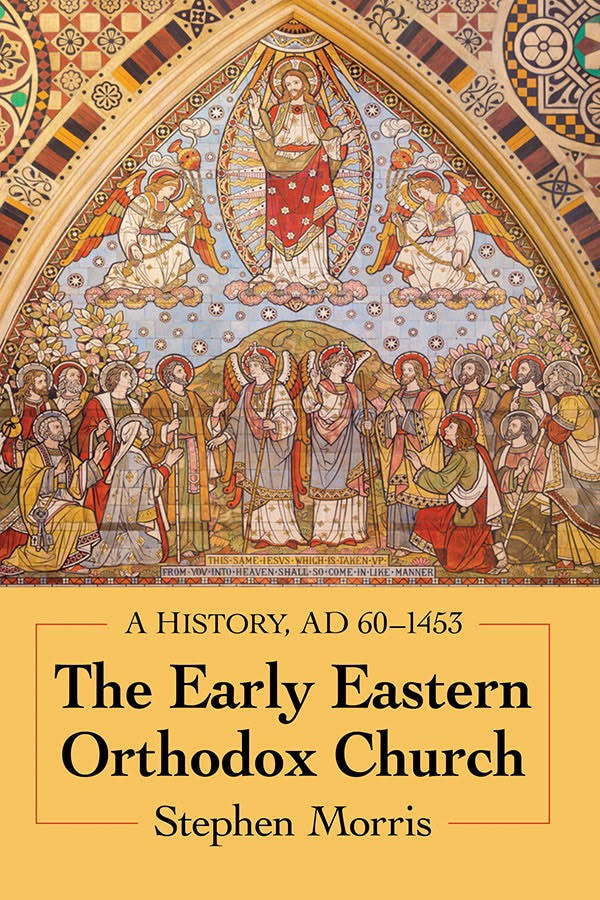NON-FICTION AVAILABLE:
“It seemed good to the Holy Spirit and to us,” the apostles declared at the conclusion of their council described in Acts 15. This apostolic council was the first of many councils to come as Christians sought to discern the will of God in the midst of historic challenges.
The faithful continued to struggle to express their new apostolic faith in new words, new languages, new places and new times. Many issues—the interaction of science and faith, divinity and humanity, Church and State—continue to be pertinent today.
This book (published by McFarland, 2018) tells the story of these struggles from the days of the New Testament to the fall of the city of Constantinople in AD 1453. It focuses on the Christian community in the eastern Mediterranean which eventually became known as the Byzantine Empire. Each chapter examines the personalities and theologies entwined at the heart of conflicts that shaped the medieval world as well as the modern cultures of Greece, the Middle East and Eastern Europe.
User-friendly text that presumes no previous knowledge. Each chapter includes suggestions for further reading if a reader wants to know more about particular periods or personalities.
“Exceptional, informative, impressively well-written, organized and presented “The Early Eastern Orthodox Church” is very highly recommended …. for the personal reading lists of students, clergy, academia, and non-specialist general readers….” (Midwest Book Review, November 2018)
ALSO AVAILABLE:
Bankers? They were to be forbidden communion, socially shunned, denied church funerals, and not commemorated during prayers for the dead. Men and women who committed fornication or adultery? They were forbidden communion for years. Men and women who remarried after divorce or widowhood? They were to be forbidden communion for years and then only allowed communion on a few holy days and even then only after weeks of sexual abstinence. Men who had sex with other men? They were to be denied communion for either 7 or 80 days.
Stephen also writes nonfiction about sexuality in Byzantine Christianity that has been widely acclaimed and which has received enthusiastic endorsements. Scholars have called his work “original and significant” (Claudia Rapp, University of Vienna), “refreshing and courageous” (Wendy Mayer, Australian Catholic University), and “fascinating” (Mathew Kuefler, San Diego State University).
You can see more about his nonfiction work at www.whenbrothersdwellinunity.com.
When Brothers Dwell in Unity: Byzantine Christianity and Homosexuality (McFarland, 2016) is available in both paperback and Kindle editions.
Please be sure to “FOLLOW” him here in order to receive notifications as new books become available.
I’m also featured on @DIYMFA Radio, where I share an inside look at my #nonfiction book WHEN BROTHERS DWELL IN UNITY: BYZANTINE CHRISTIANITY AND HOMOSEXUALITY. https://DIYMFA.com/179


